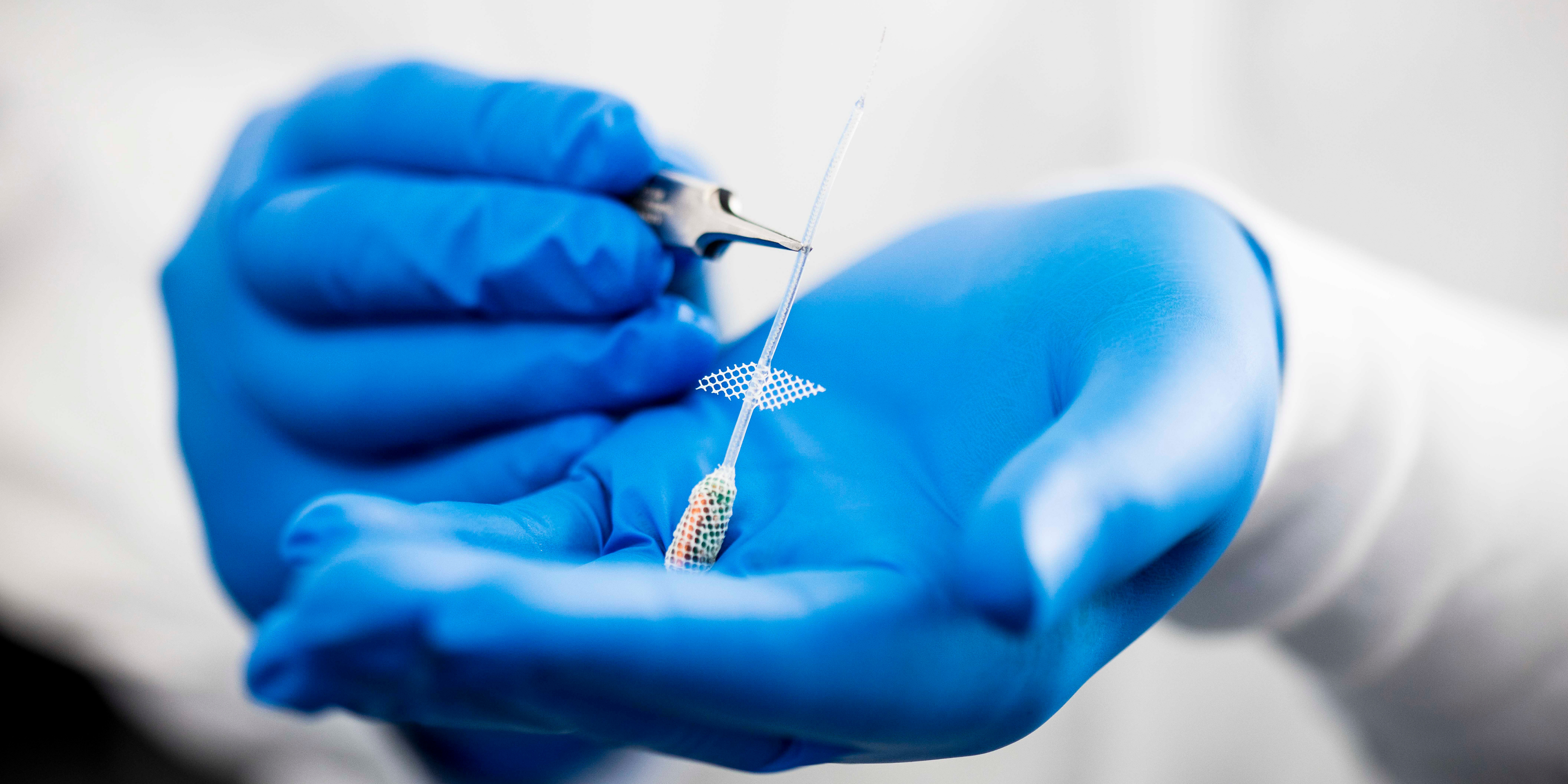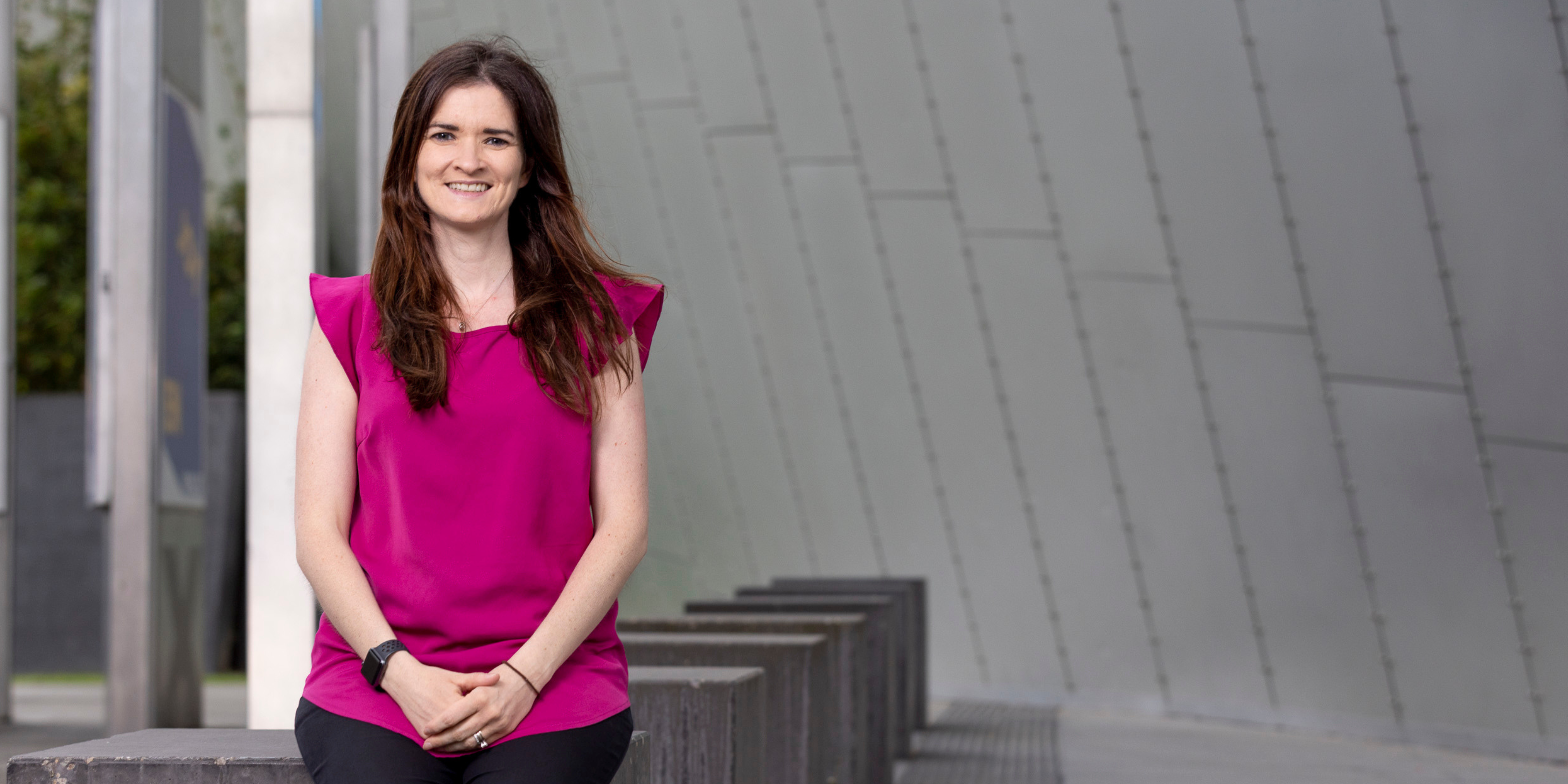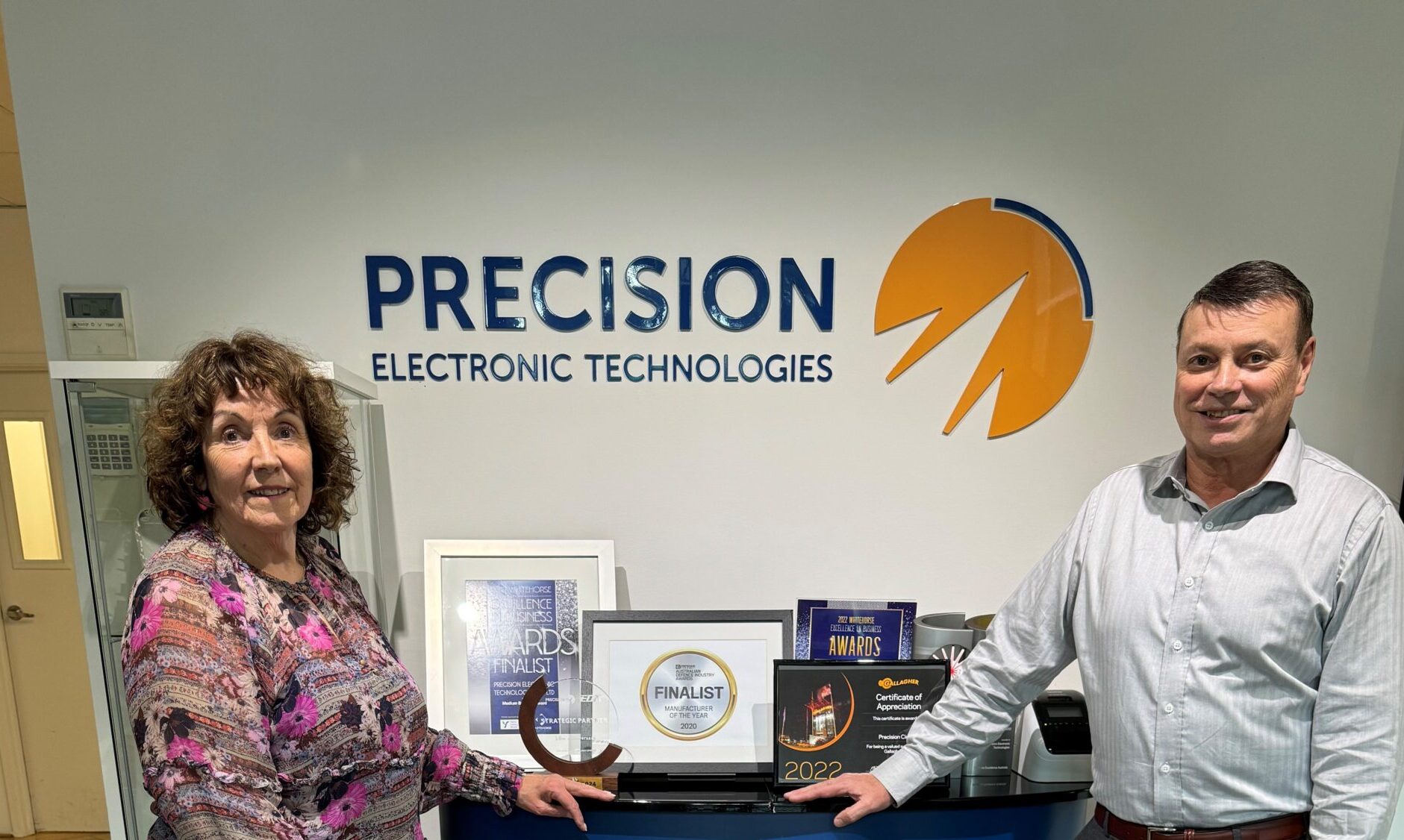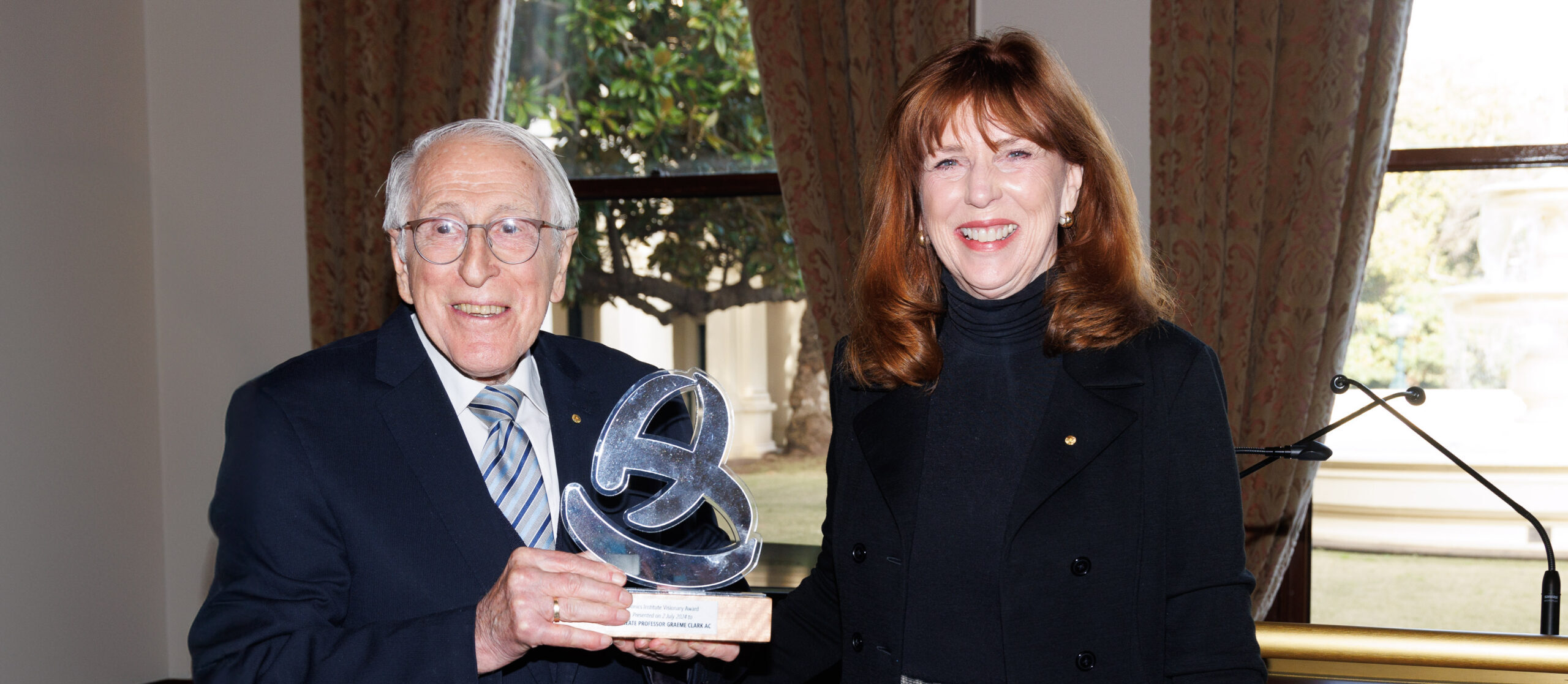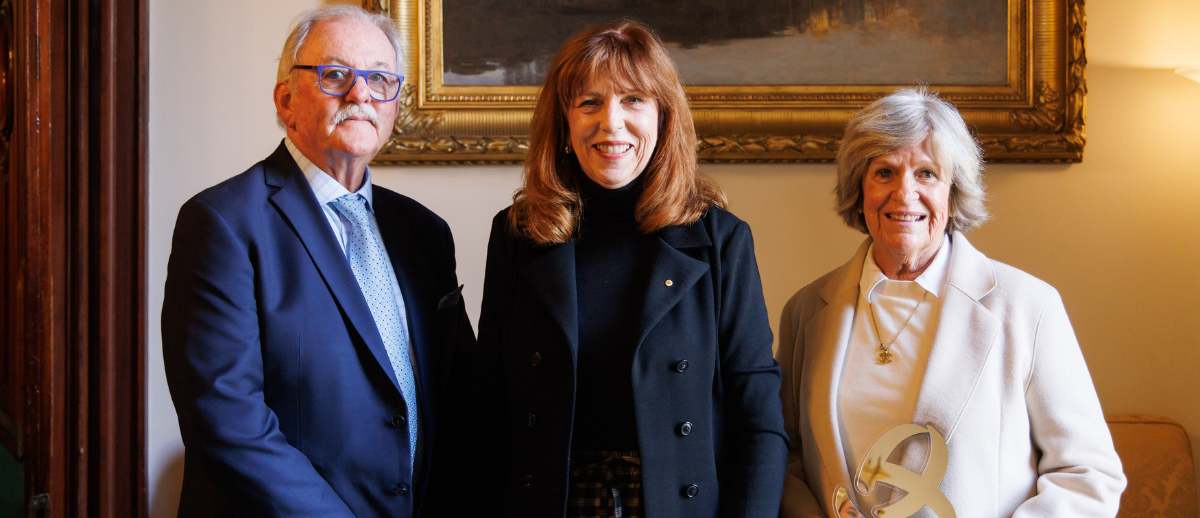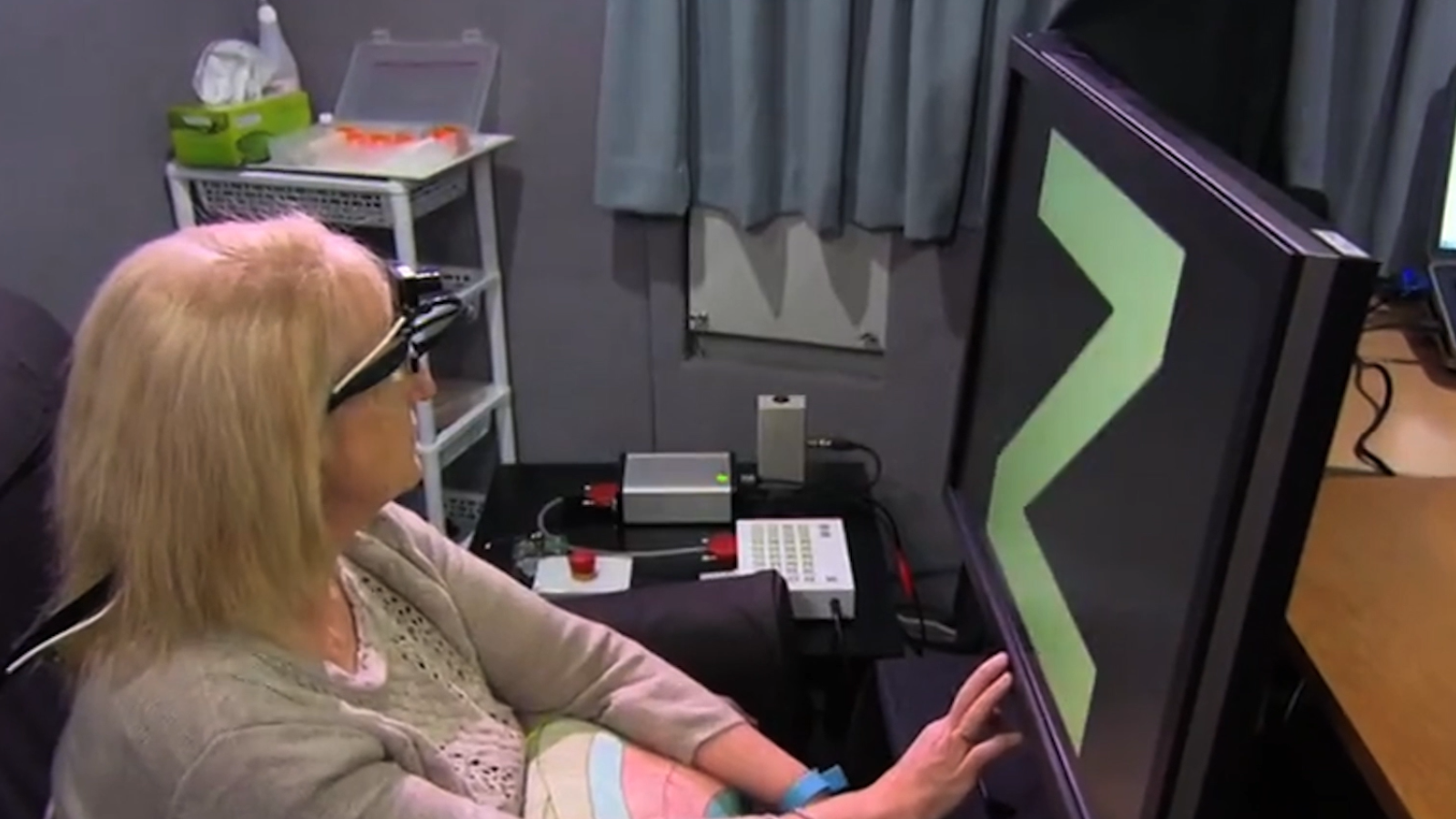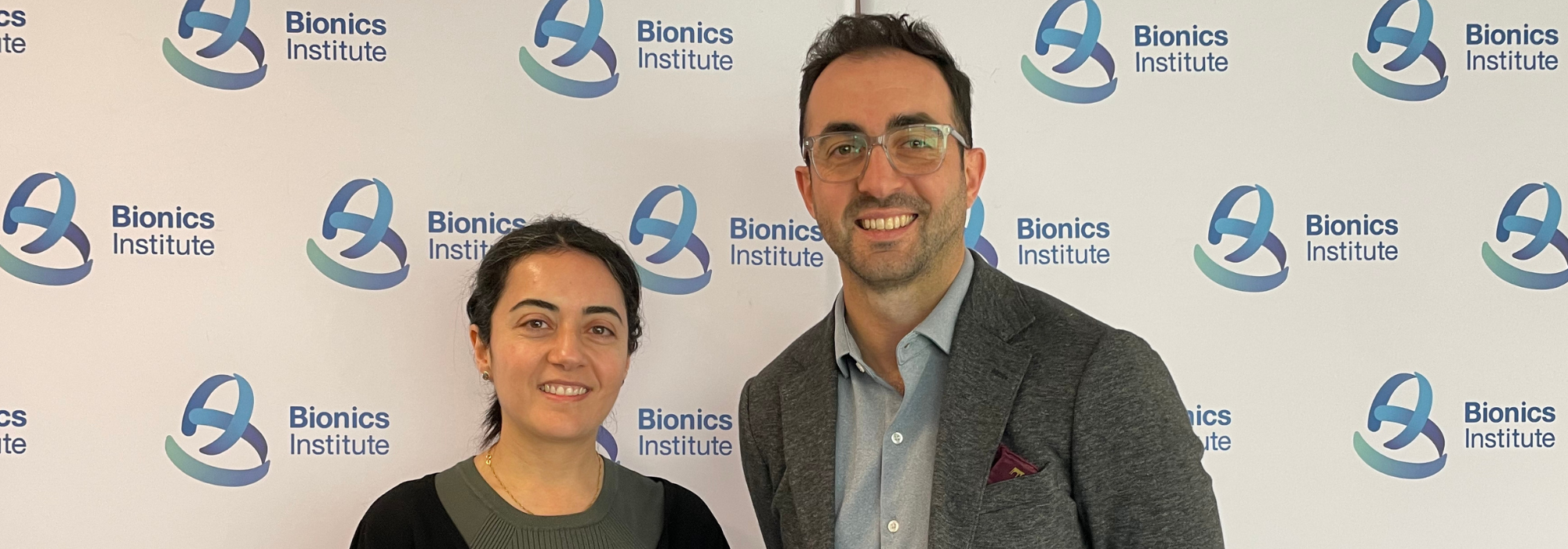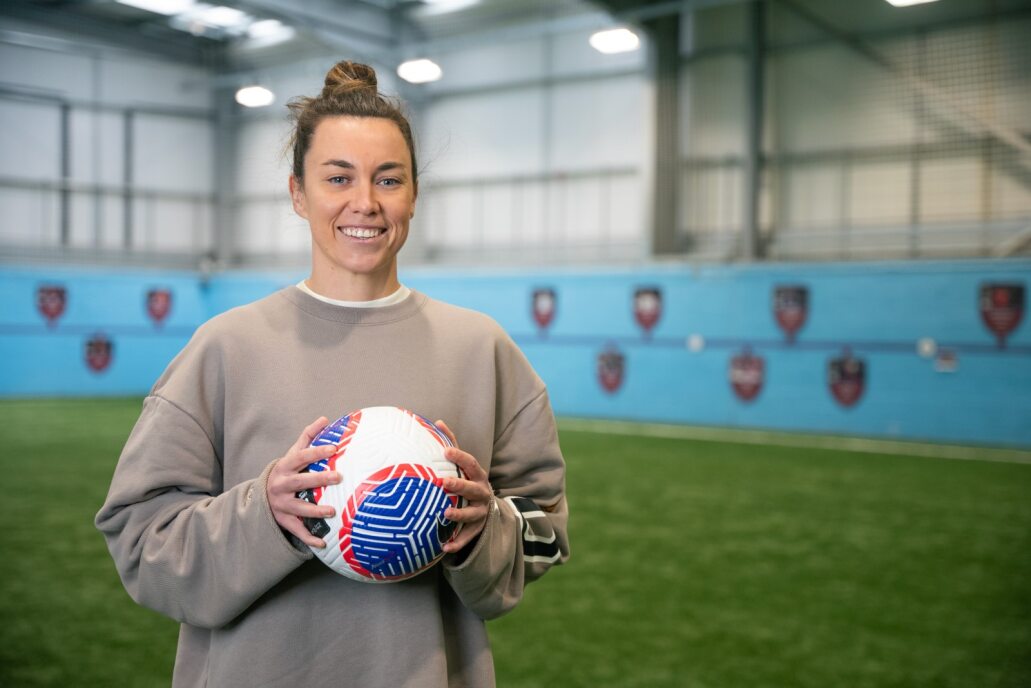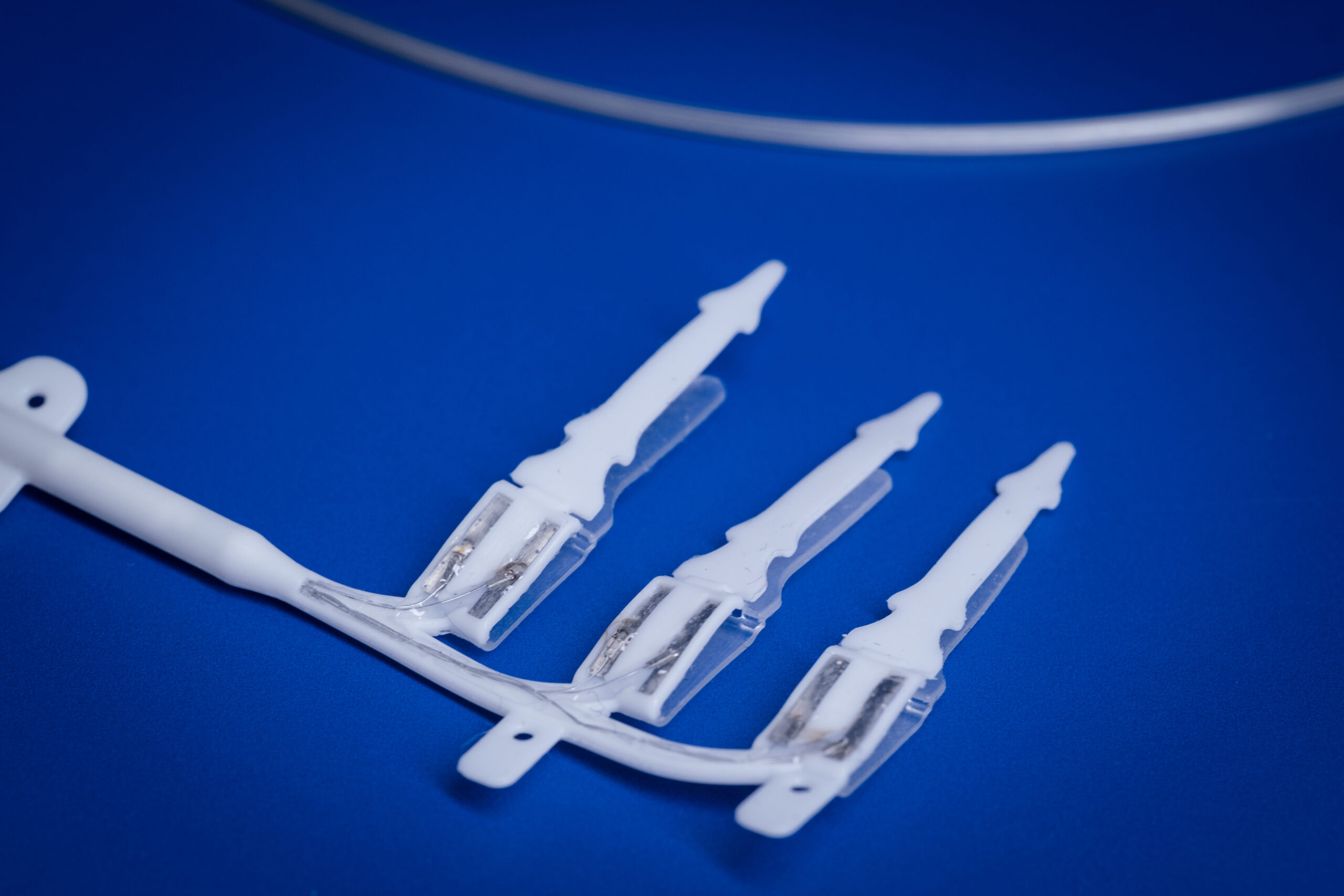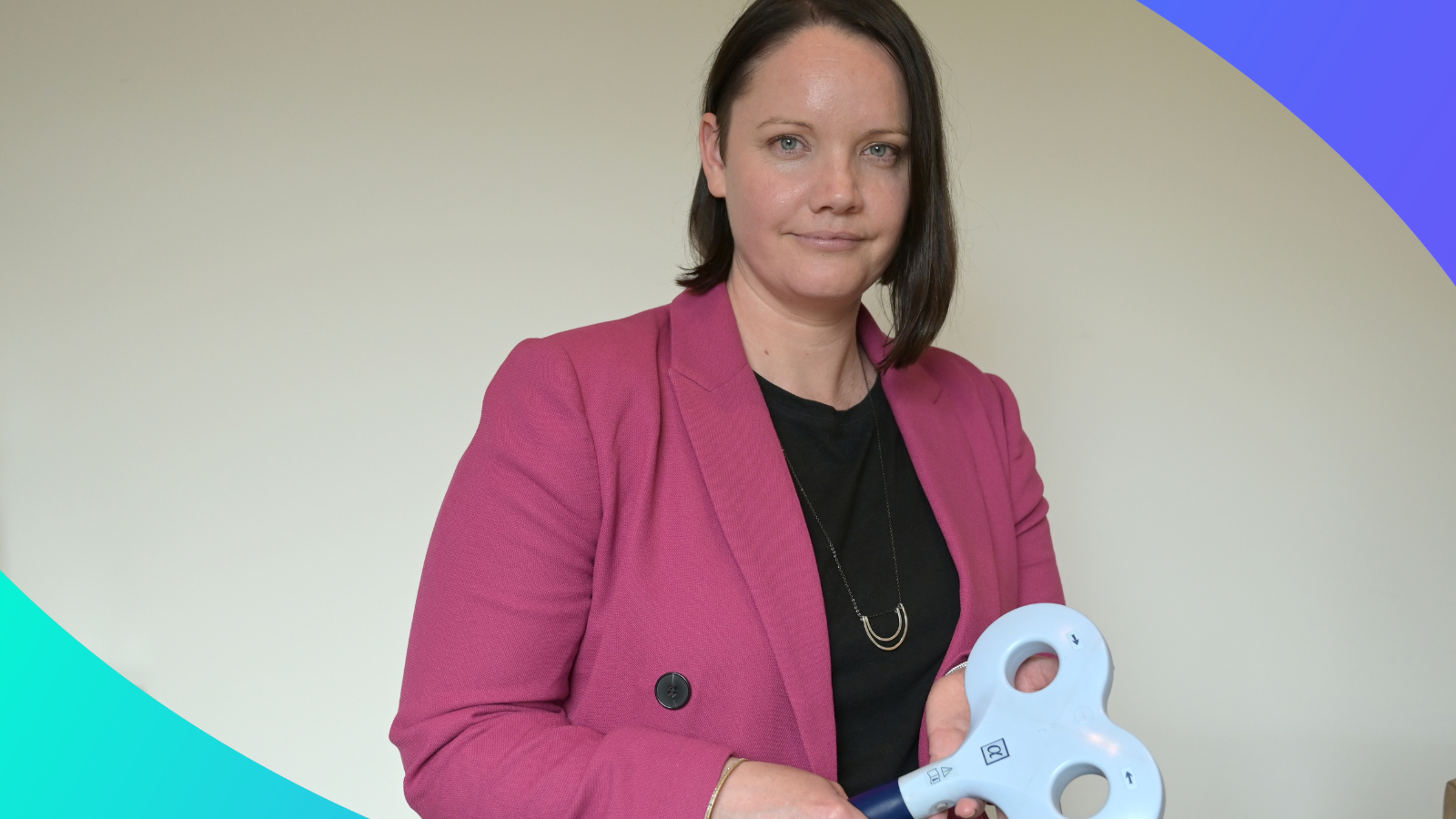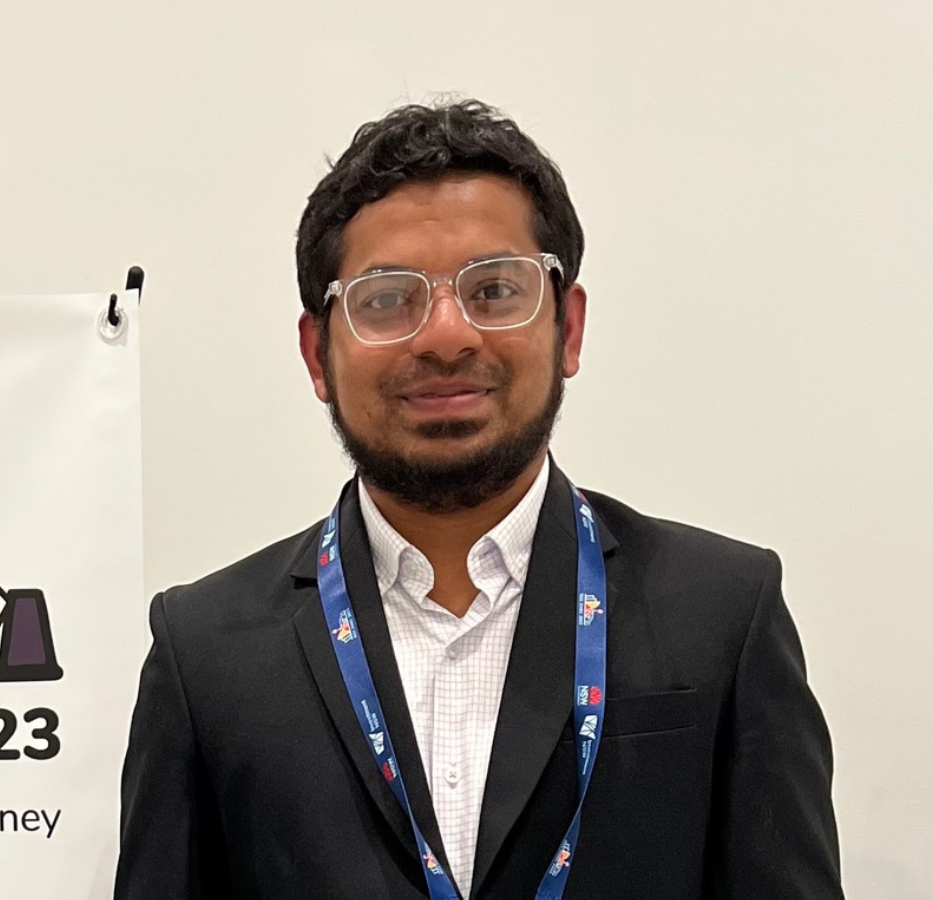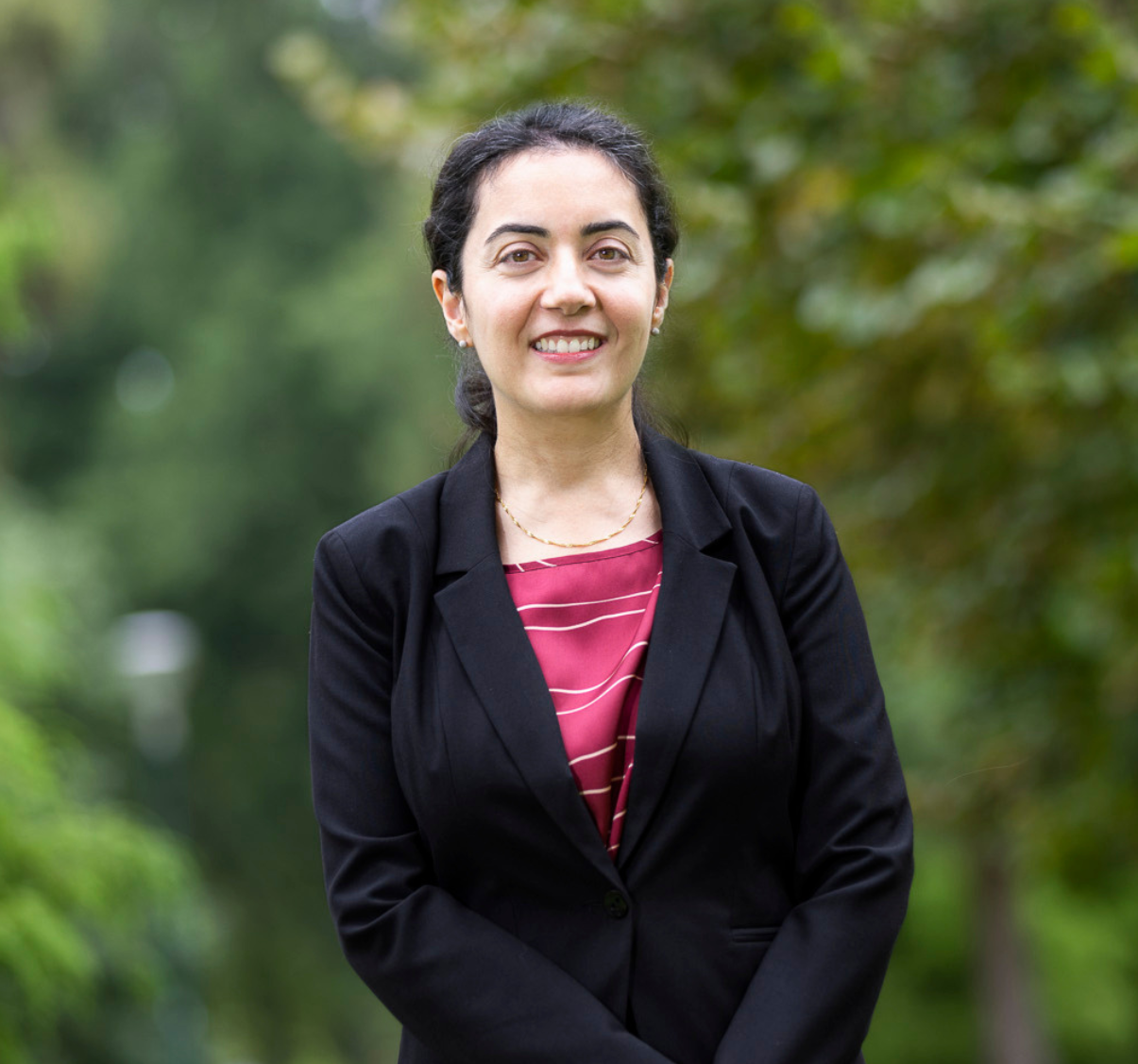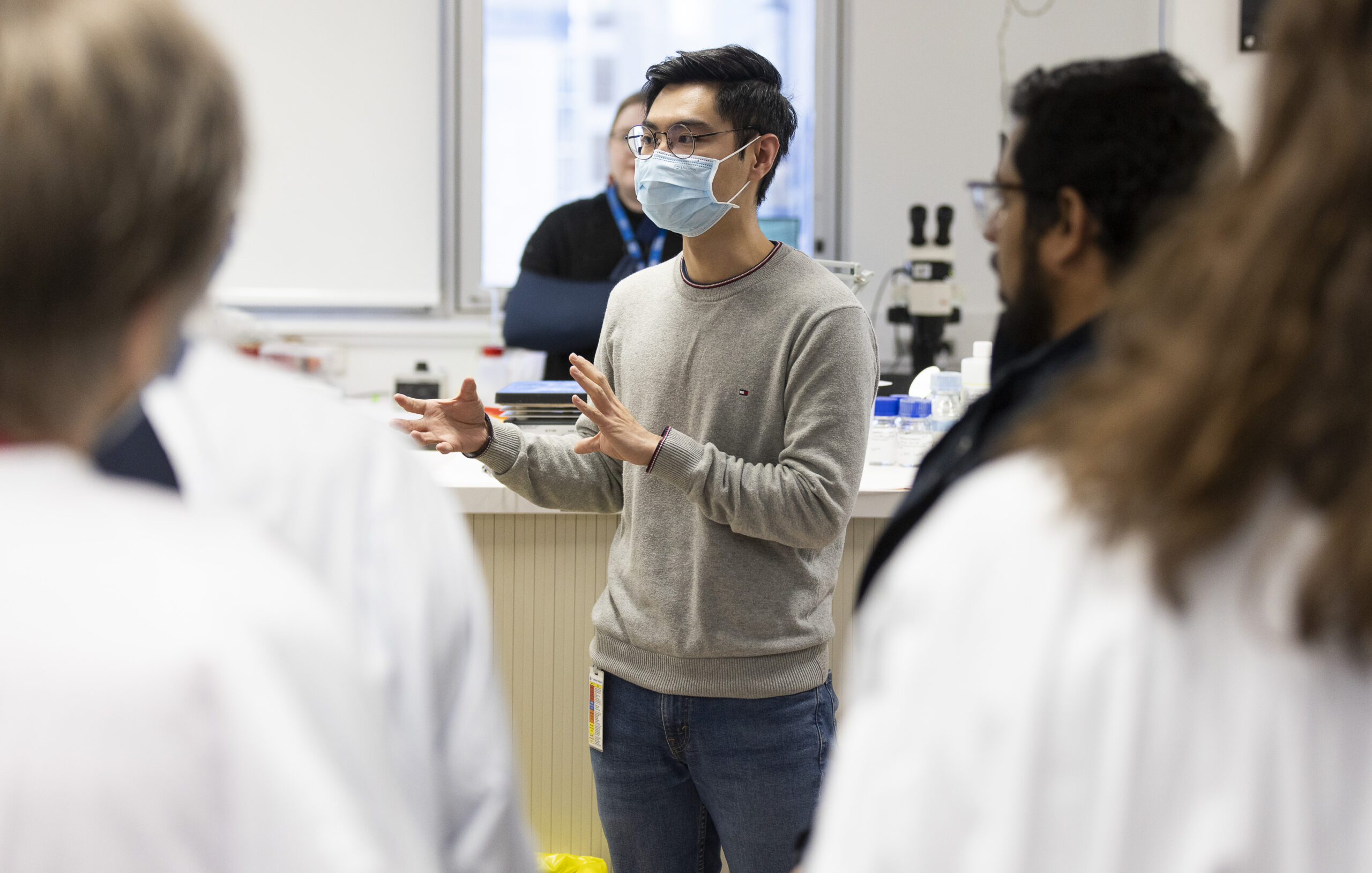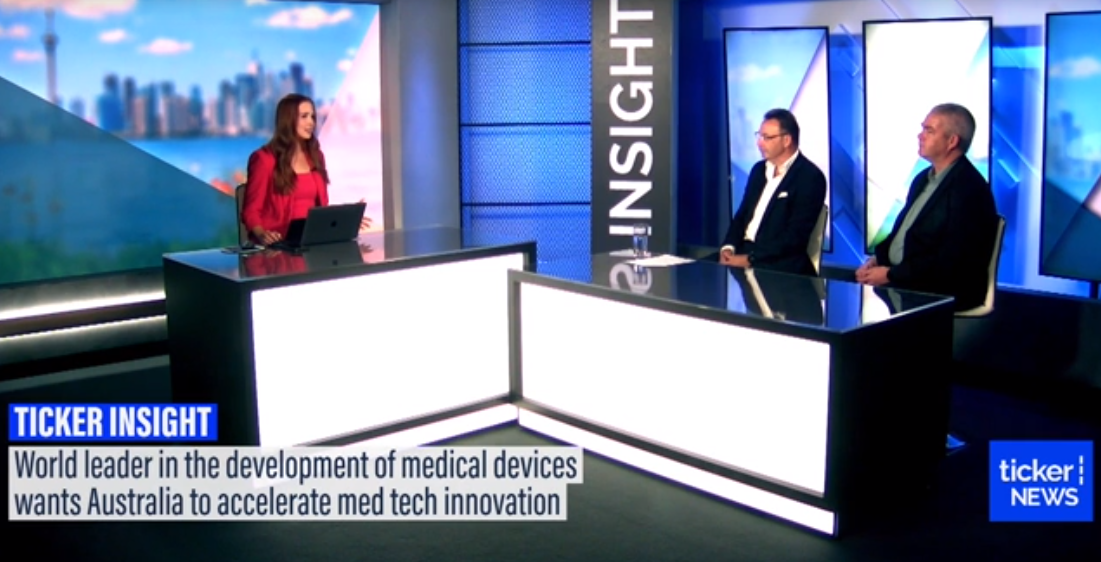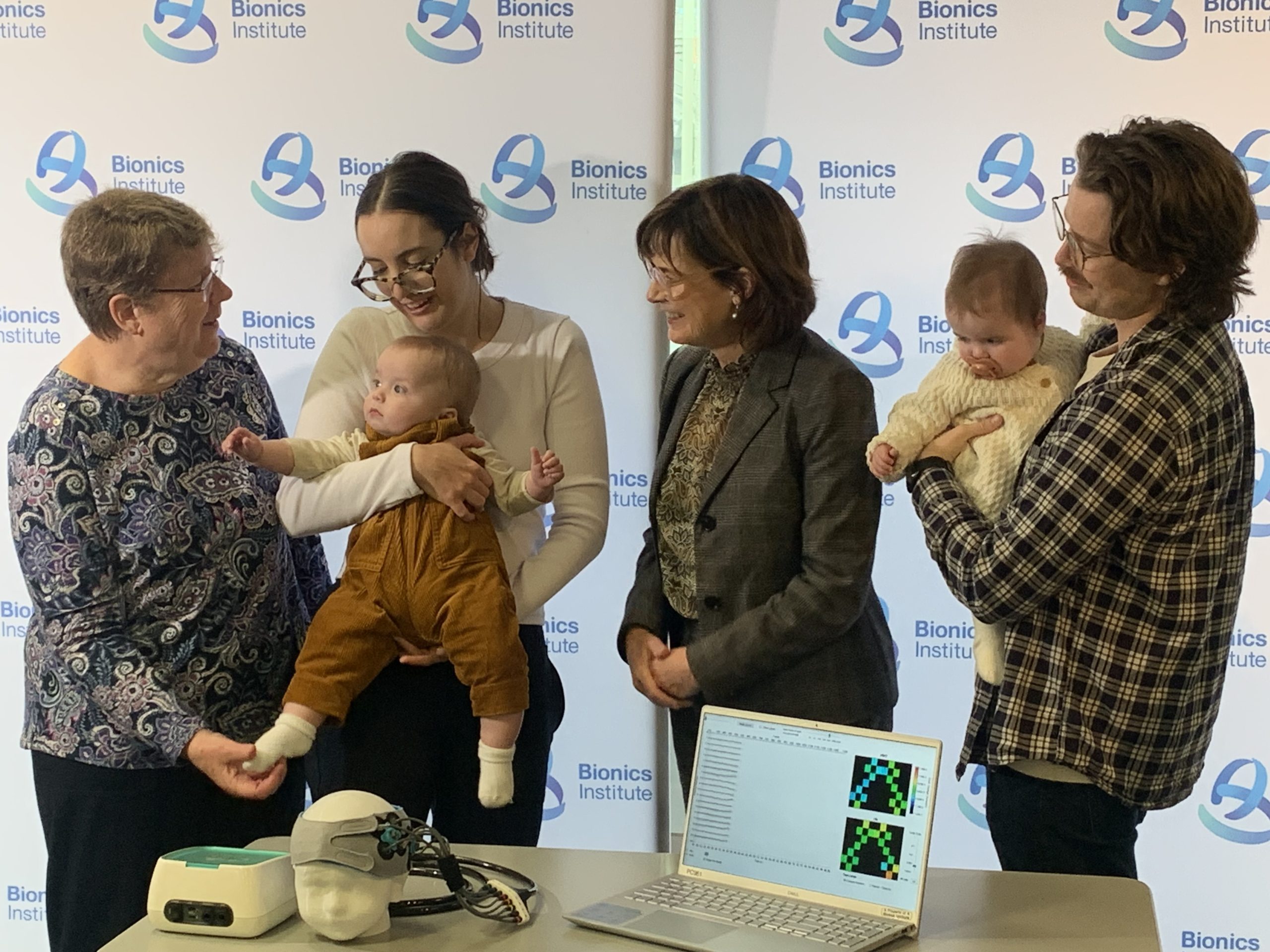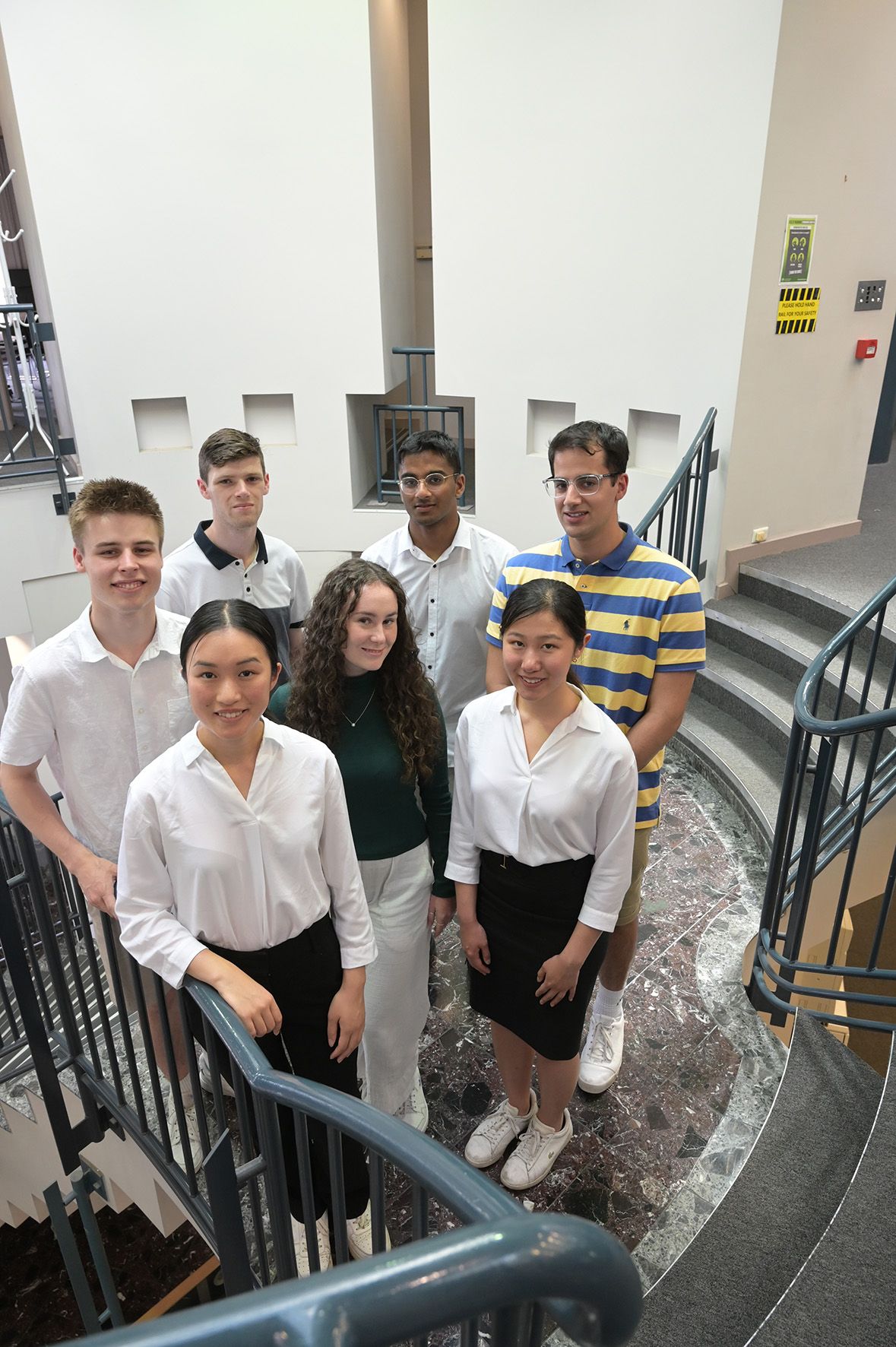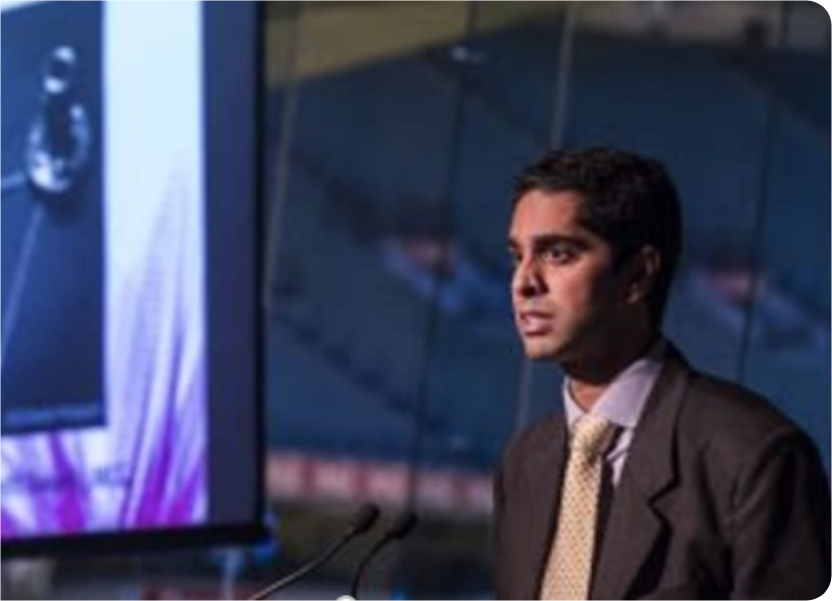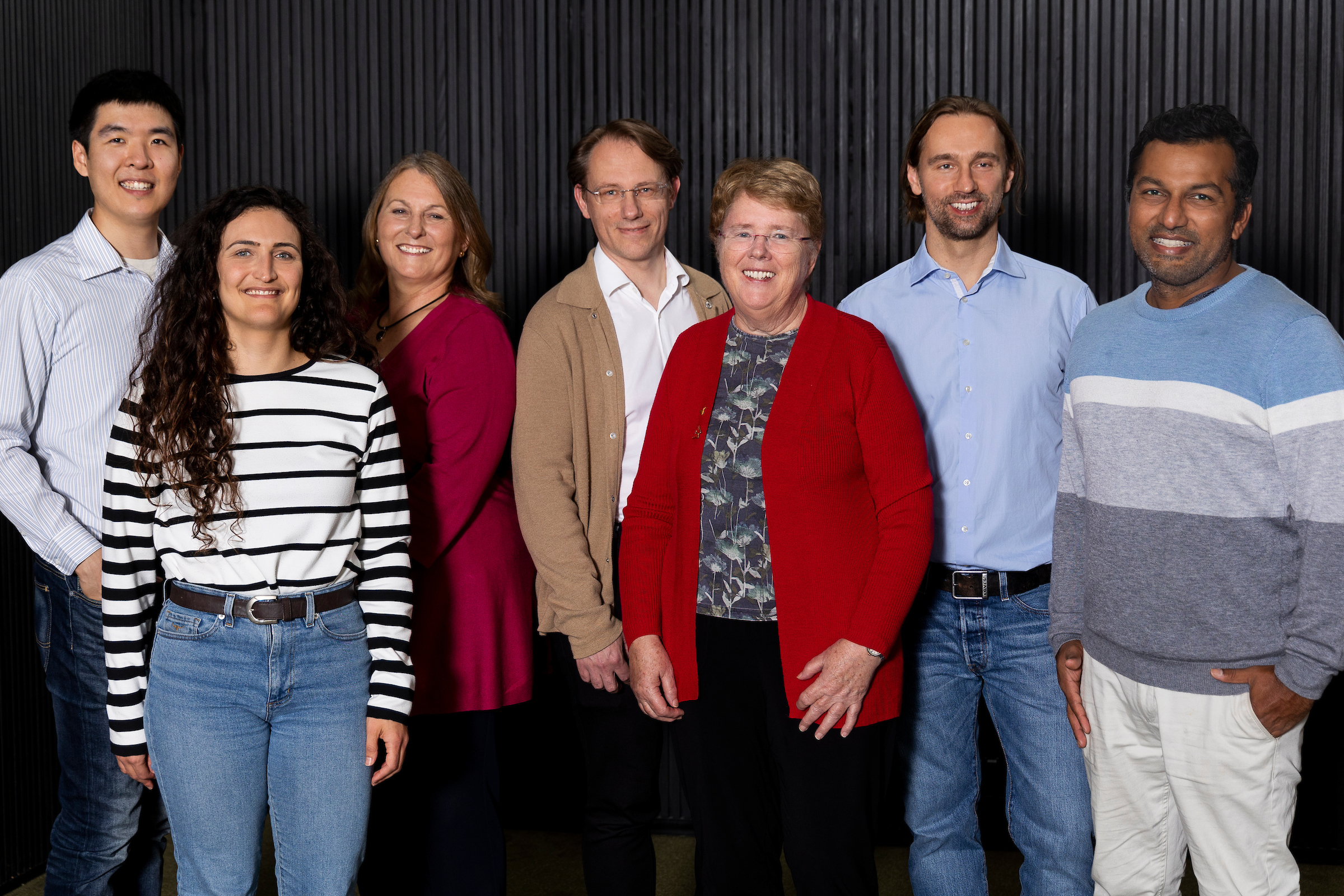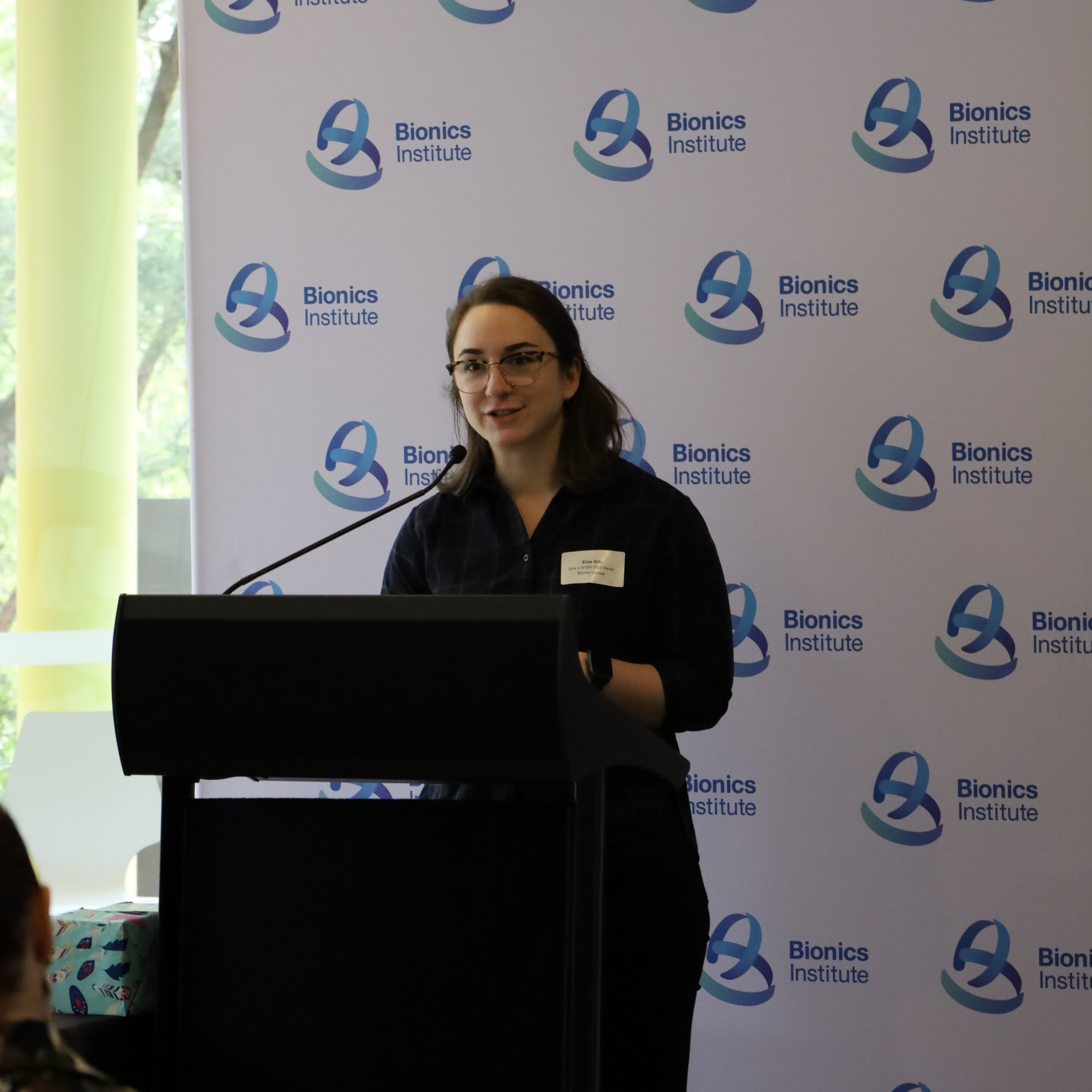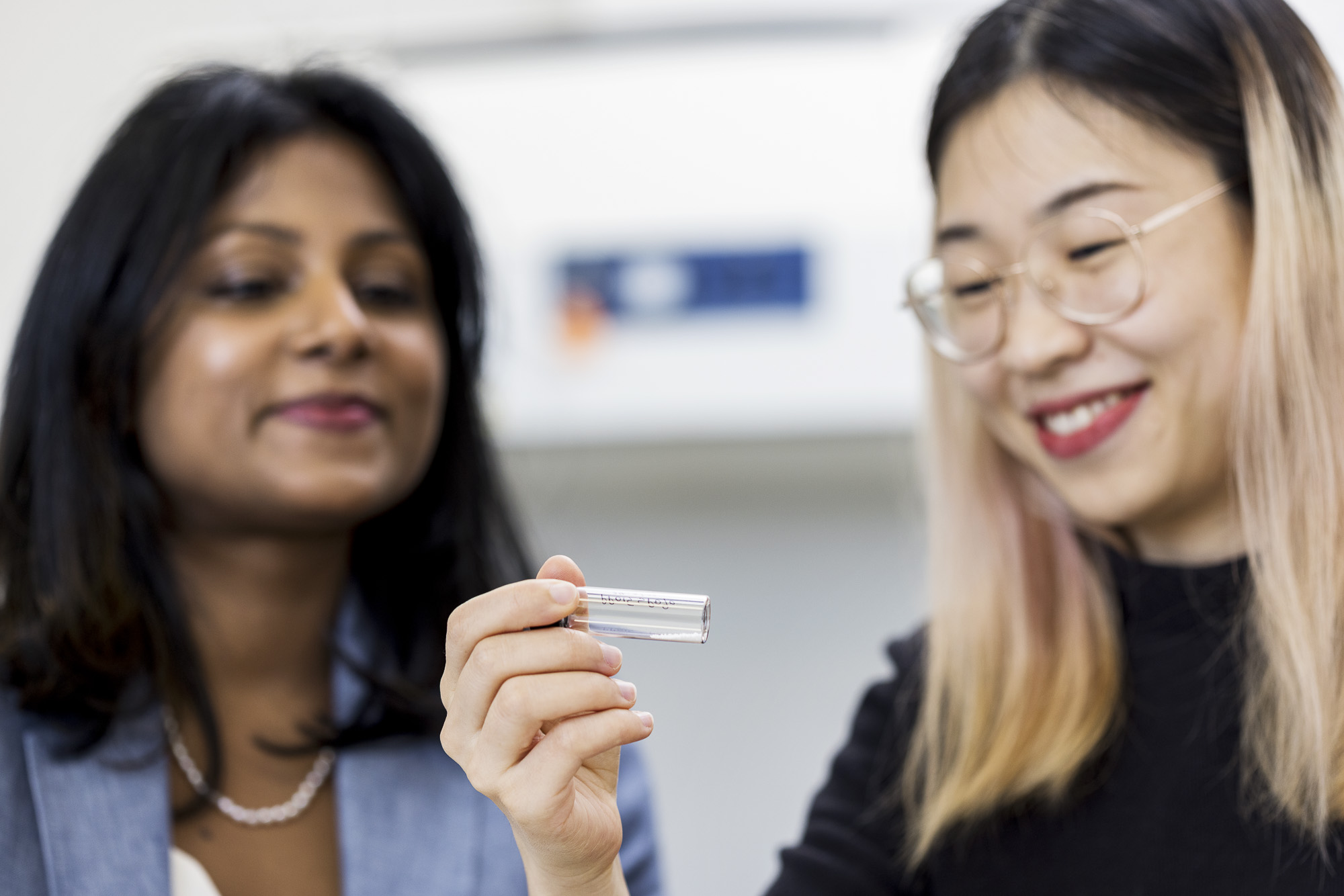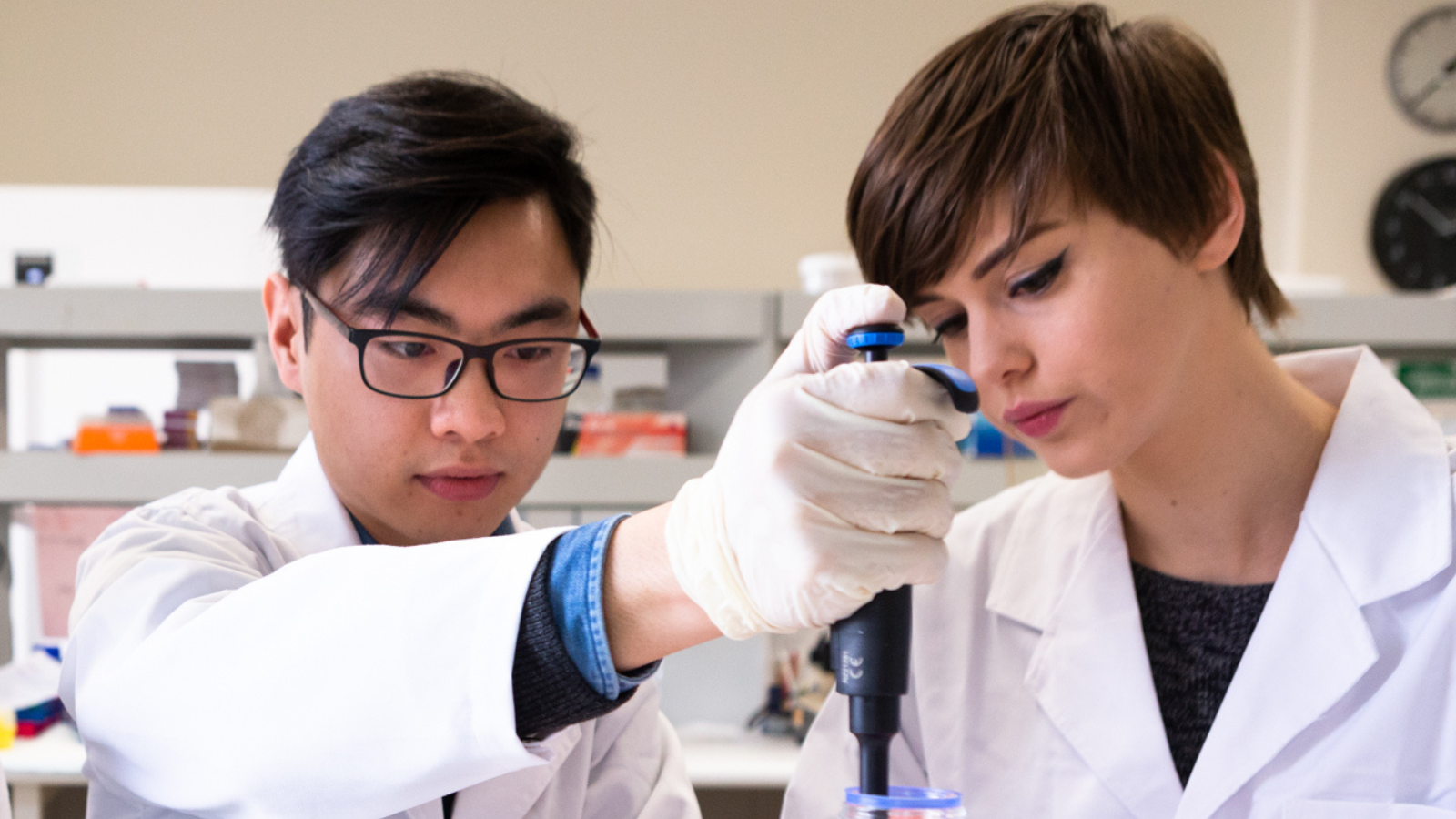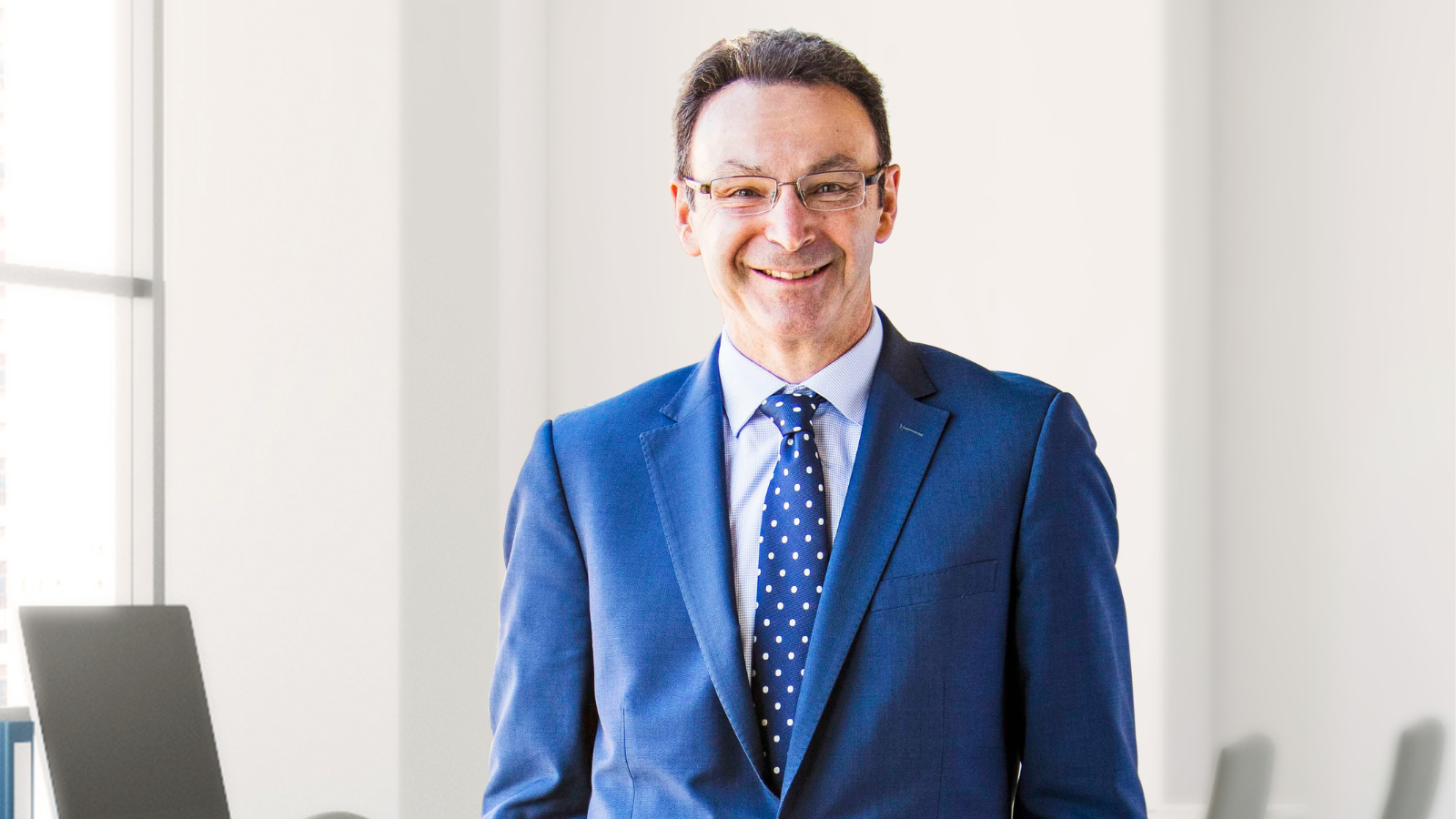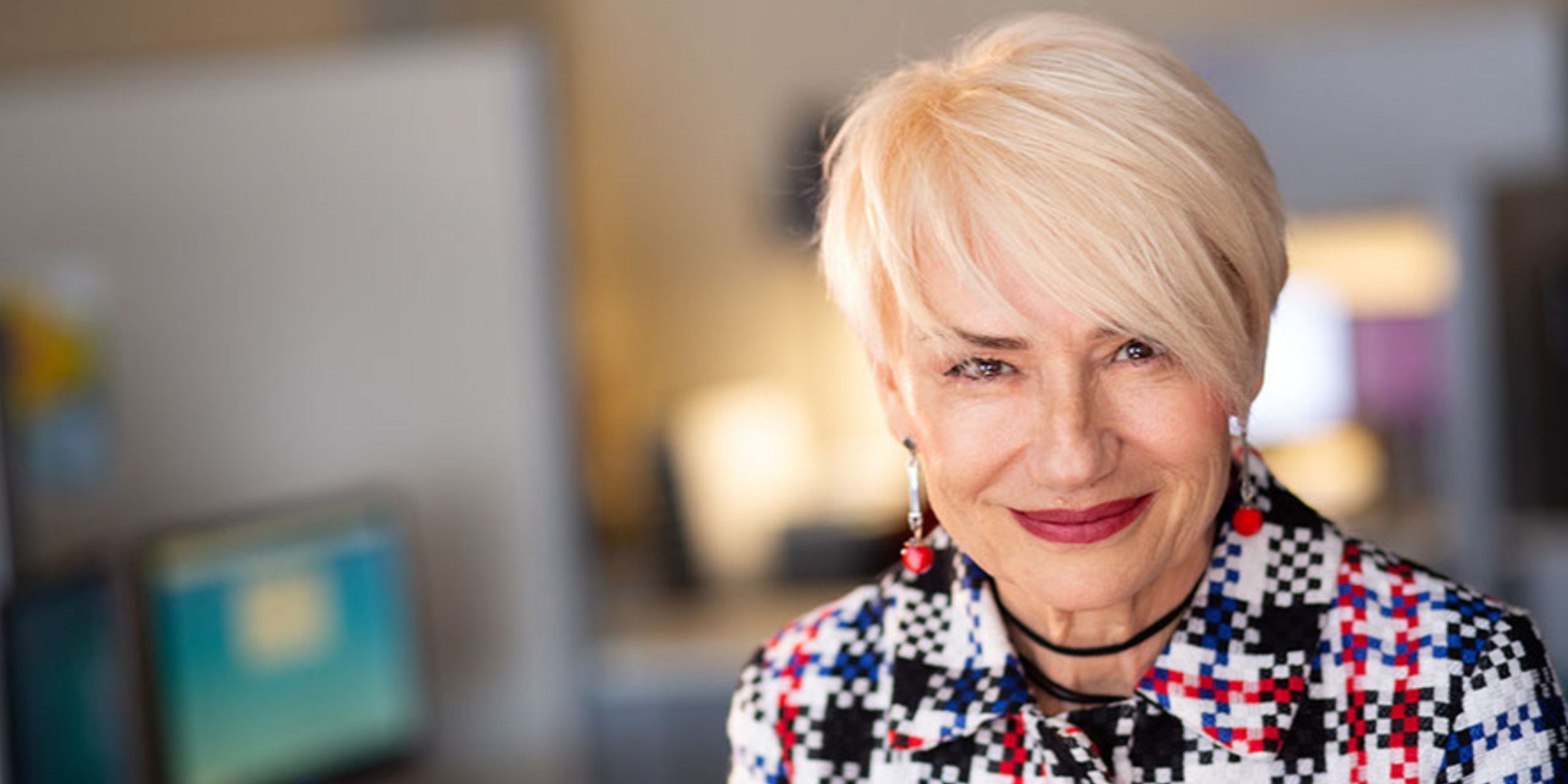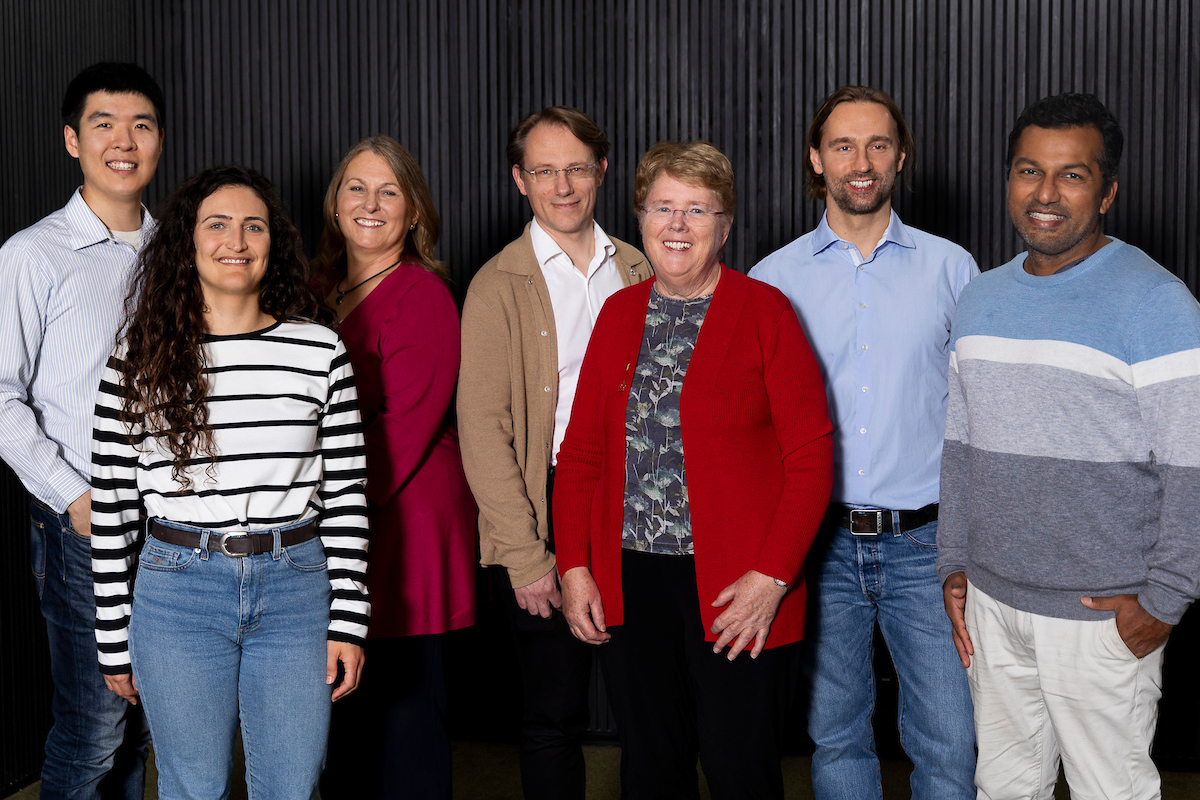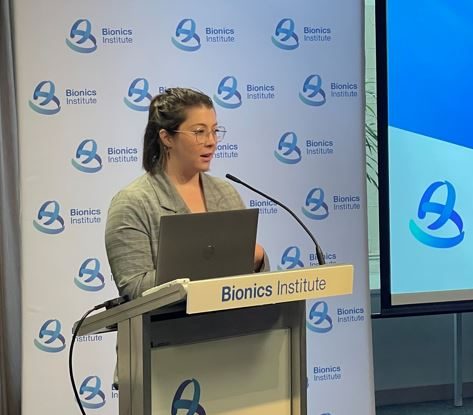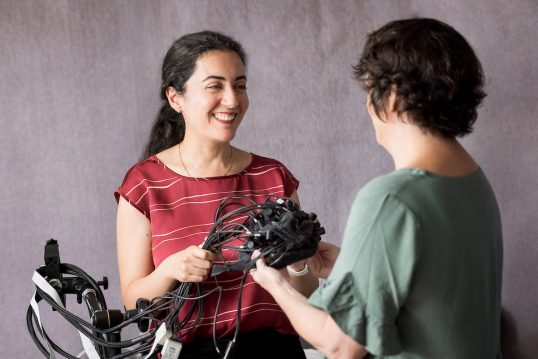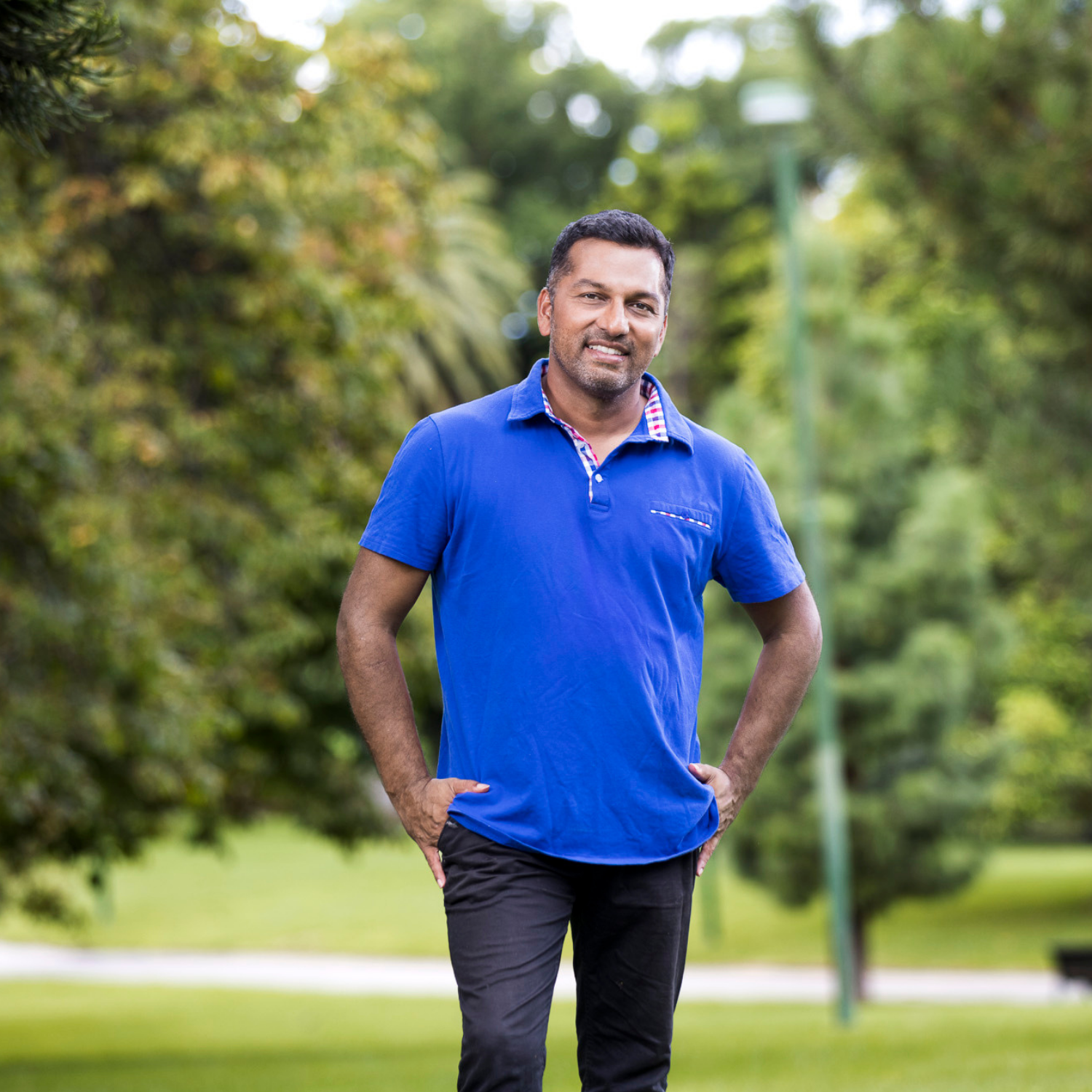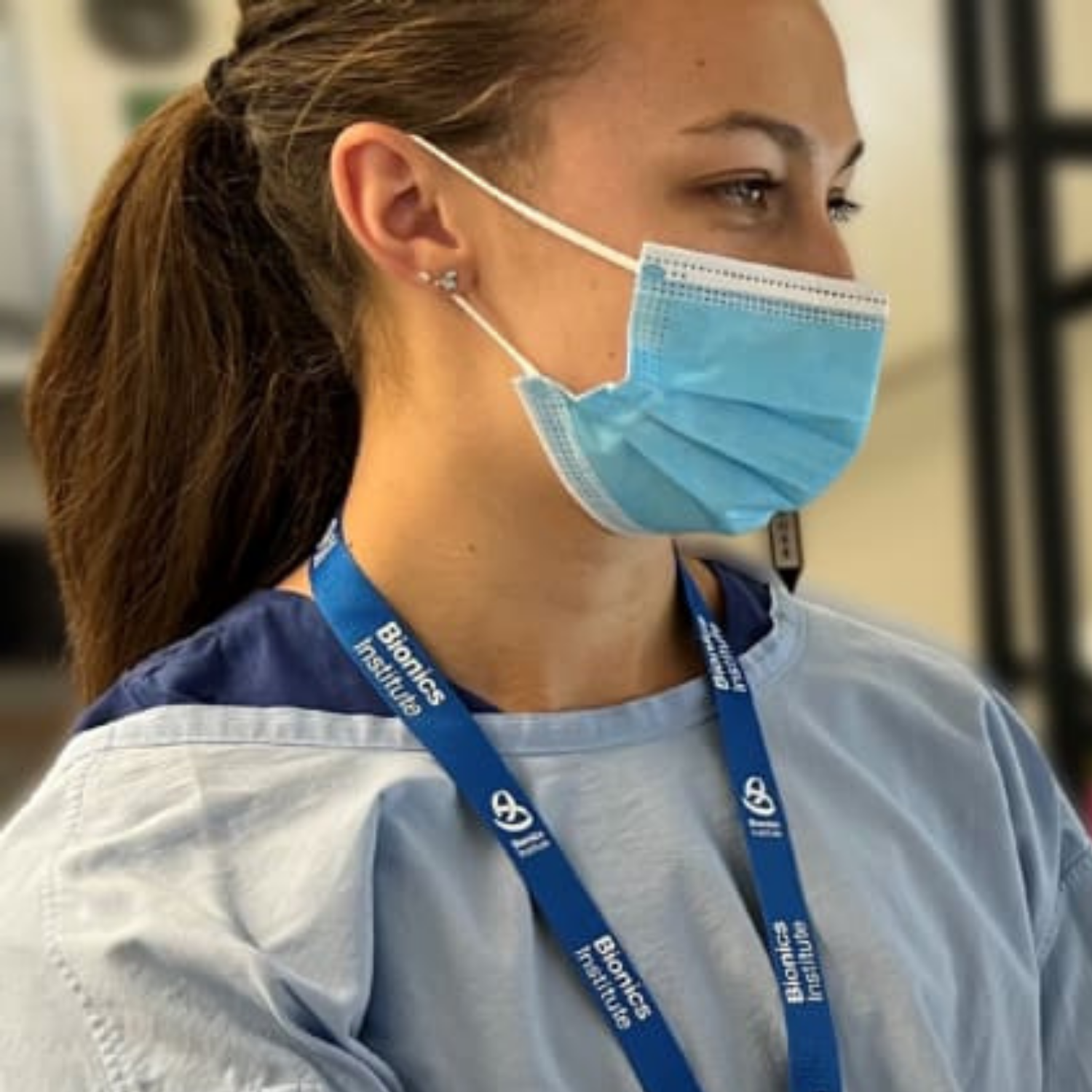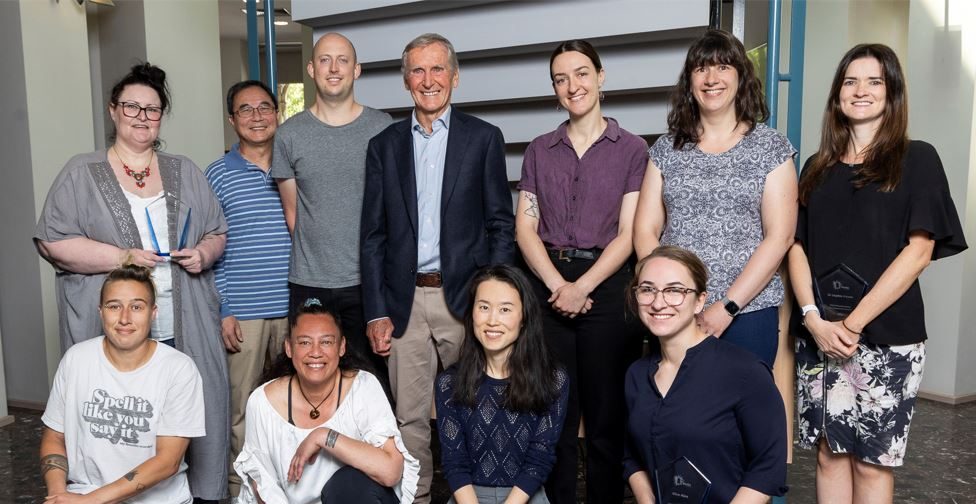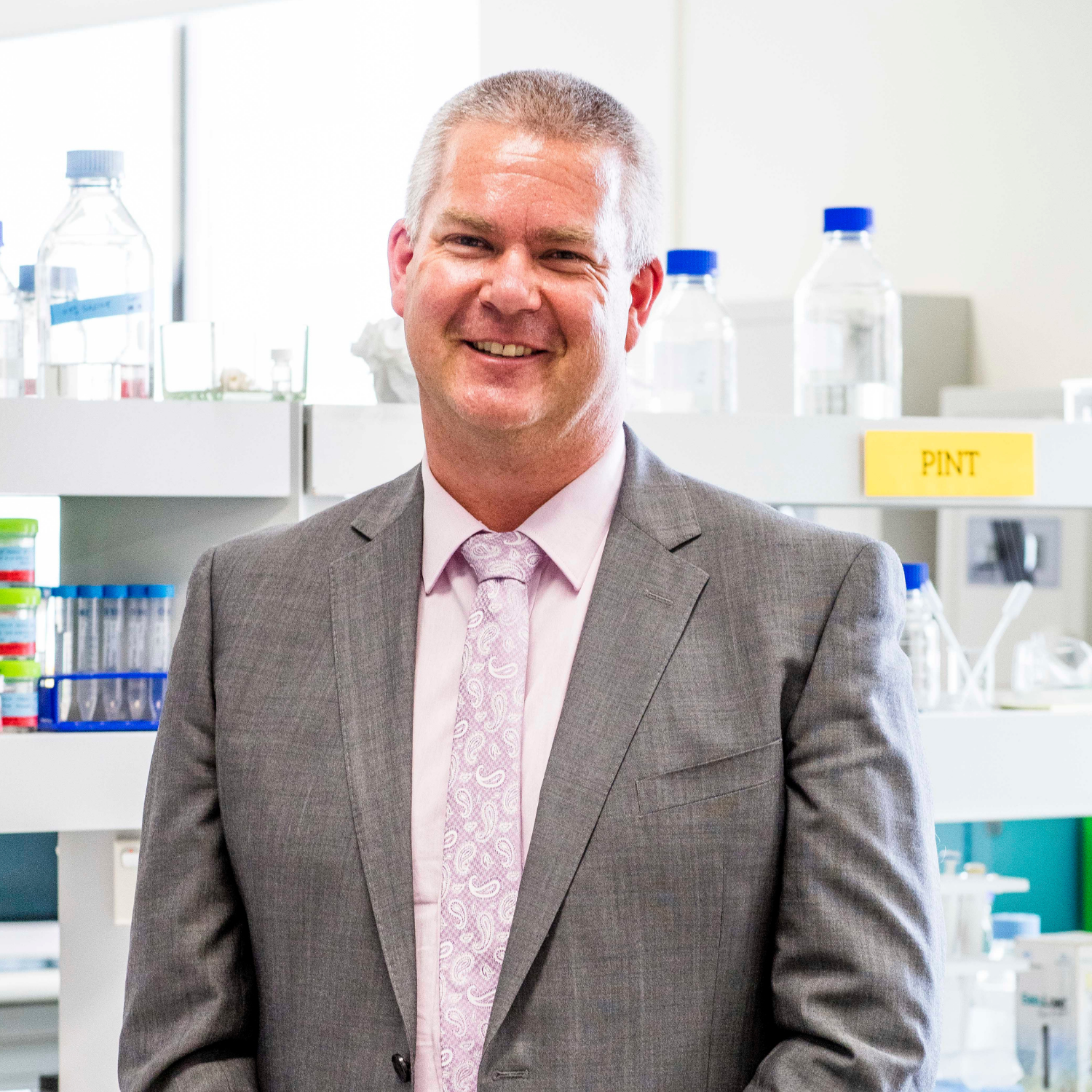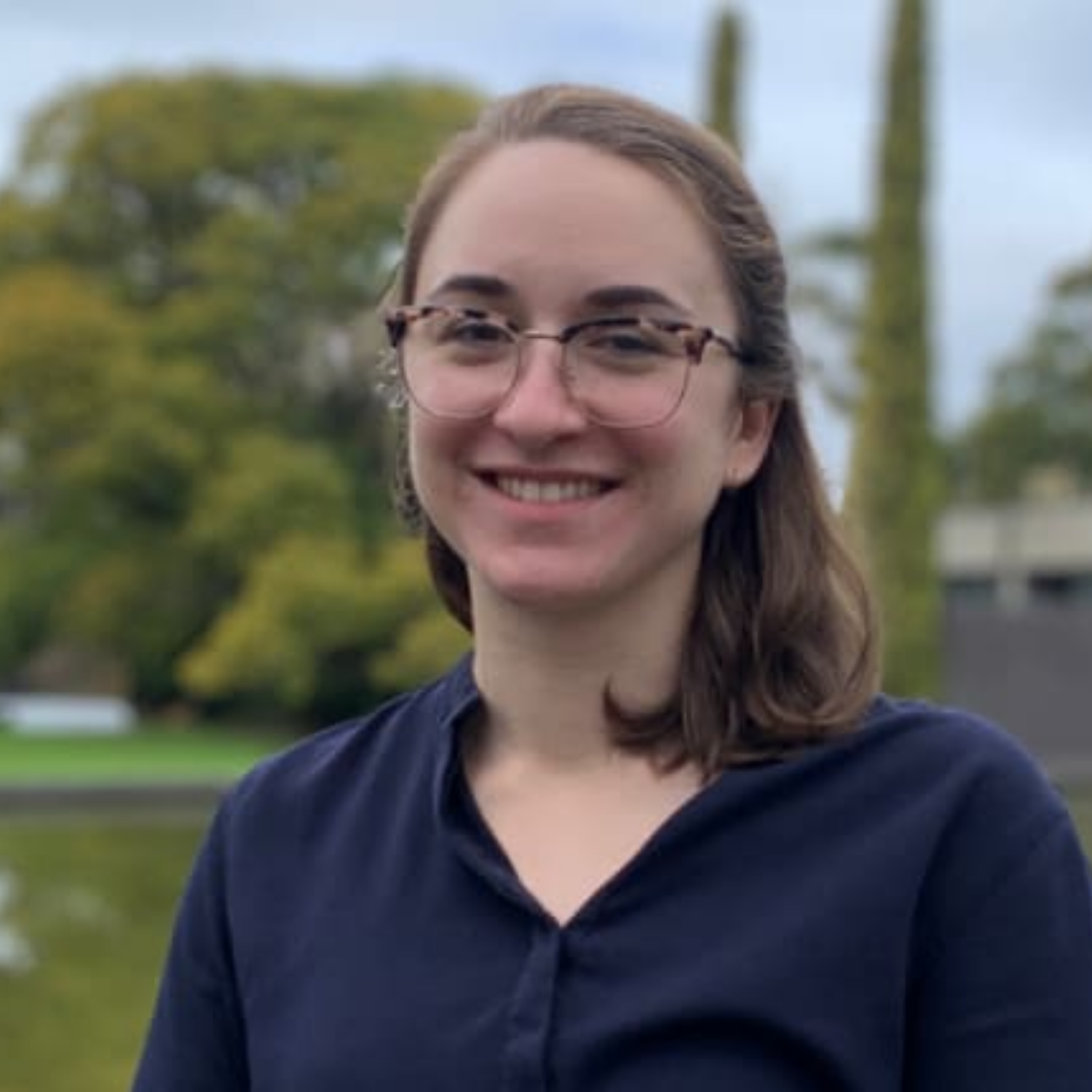Latest News
Visionary Award presented to Laureate Professor Graeme Clark AC
Laureate Professor Graeme Clark AC was presented with the Bionics Institute Visionary Award at a Government House Victoria celebration of his first bionic ear implant in recognition of his immense contribution to society.
Her Excellency, Professor, the Honourable Margaret Gardner AC, Governor of Victoria, kindly hosted a celebration of the 46th anniversary of the successful implantation of the first multi-channel cochlear implant on 2 July, and personally thanked Professor Clark for transforming the lives of people with hearing loss.
One of Australia’s greatest medical research breakthroughs, the cochlear implant was invented and developed by Professor Clark’s team at the University of Melbourne, and first implanted in Rod Saunders at the Royal Victorian Eye and Ear Hospital in 1978.
“The invention of the cochlear implant has enriched the lives of countless people and is an early example of Victoria’s contribution as a global leader in medical research.” Her Excellency, Professor, the Honourable Margaret Gardner AC, Governor of Victoria
Professor Clark was inspired to help severely deaf people hear at an early age because he had a deaf father and always knew he “wanted to fix ears”, which led to him becoming an ear, nose and throat surgeon.
Professor Clark knew the cochlear implant operation on Rod Saunders was a success when his team developed a speech code for electrical stimulation of his brain that enabled him to recognise some words without any help from lipreading. He says he was so overcome with emotion he went quietly into the next-door lab and cried tears of joy.
The cochlear implant not only changed the way hearing loss is treated forever, but also led to Professor Graeme Clark founding the Bionics Institute in 1986 to continue development of the cochlear implant.
The improvements his team made to the implant in the years following the first successful implant were making a smarter speech code and using implants in each ear to make it easier to localise sound and hear in noise.
Professor Clark’s team worked closely with Cochlear Limited to ensure the device was smaller, safer and more reliable, and also worked with Cochlear to show how it should be used on young deaf children to allow them to achieve normal spoken language.
The Bionics Institute has remained at the forefront of hearing research since then, while also expanding into the development of medical devices to treat some of the world’s most challenging conditions, such as Crohn’s disease, rheumatoid arthritis and Alzheimer’s.
“I feel very honoured to receive the Bionic Institute’s Visionary Award, presented by Her Excellency, Professor, the Honourable Margaret Gardner AC, and am pleased the Bionics Institute is expanding our work to other areas.” Laureate Professor Graeme Clark AC
Professor Clark continued: “I am also excited the University of Melbourne has created the Graeme Clark Institute of Biomedical Engineering to integrate our research across disciplines to help those with disabilities, and it is good the Graeme Clark Foundation is raising funds to help poor and disadvantaged people in Australia and overseas.”
At the celebration event, Robert Klupacs, Bionics Institute CEO gave a warm welcome to Professor Clark and his wife, Margaret, members of the original research team, representatives from the University of Melbourne, the Eye and Ear Hospital and Cochlear Ltd.
“The Bionics Institute’s journey began with development of the cochlear implant that positively impacted the lives of so many people. Thank you, Professor Clark, you are an inspiration. We are honoured to recognise your support with the Bionics Institute Visionary Award.” Robert Klupacs, Bionics Institute CEO
